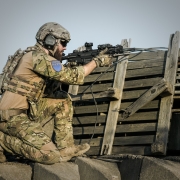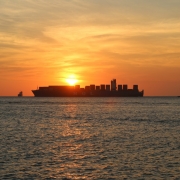What happened in the Nicaragua case?
On 9 April 1984, the Nicaraguan government submit a case to the International Court of Justice (ICJ) with regards to the alleged illegal military and paramilitary activities conducted by the United States of America (USA). The premise was that USA had supported the Contra rebels and sought to destabilize the Sandinista government, which was interpreted as a violation of international law. The case was controversial as it involved a superpower that held considerable political influence. In summary, while the ICJ had ruled in favour of Nicaragua, USA ignored the Court’s ruling and refused to pay compensation, reflecting the limited effectiveness of the judicial organ of the UN.
Topic of Study [For H2 History Students]:
Paper 1: Safeguarding International Peace and Security
Section B: Essay Writing
Theme III Chapter 2: Political Effectiveness of the UN in maintaining international peace and security – International Court of Justice: ensuring adherence to international law; arbitration and advisory opinion
In the following section, we will focus on the background of the case and how the ICJ performed its arbitration role to resolve the dispute. This case study is useful for students in comprehending the political effectiveness of the Court in maintaining adherence to the international law.
1. [USA] External involvement in Nicaragua
In fact, USA had military involvement in Nicaragua since 1909. Under the leadership of US President William Taft, USA sought to overthrow the Nicaraguan government. Fast forward to the 1980s, Ronald Reagan was in support a rebel group, known as the Contras. At that time, the Contras shared the common aim of toppling the Sandinista government.
Therefore, USA provided both financial and military assistance to the Contras. As such, Nicaragua was attacked, as seen by the incursions at the ports, oil installations and a naval base.
2. [Nicaragua] Threats to national security
Facing significant threats to its national security, the Nicaraguan government lodged a formal complaint to the ICJ due to the perceived breach of its sovereign rights. Through the ICJ, Nicaragua hoped that the USA would pay reparations for the damages.
However, USA refused to accept ICJ’s jurisdiction and chose not to participate in the proceedings. It claimed that the military actions undertaken in Nicaragua were to defend its allies, such as El Salvador, due to the alleged aggression inflicted upon by Nicaragua.
3. [ICJ] Outcome: The Court’s response
On 27 June 1986, the Court concluded that USA had violated the customary international law as it supported rebel forces that sought to destabilize the Nicaraguan government. As such, ICJ stated that USA was obligated to compensate Nicaragua for the breaches of international law that led to significant damages.
Yet, on 28 October 1986, USA invoked the veto when the Security Council sought to pass a resolution that called for immediate compliance with the Court’s ruling. Although the UN General Assembly succeeded in passing a non-binding resolution in the next month, the US refused to make reparation to Nicaragua. In March 1988, the USA maintained its position to not participate in the case. Eventually, Nicaragua relented as seen by its declaration to the Court in September 1991 to discontinue the proceedings.
What can we learn from this case study?
Use the following questions to assess your understanding of this case:
– Did ICJ manage to perform its arbitration role effectively?
– What are the critical factors that determined the effectiveness of ICJ in ensuring member states adhere to the international law?
The H2 and H1 History Tuition feature online discussion and writing practices to enhance your knowledge application skills. Get useful study notes and clarify your doubts on the subject with the tutor. You can also follow our Telegram Channel to get useful updates.
We have other JC tuition classes, such as JC Math Tuition and JC Chemistry Tuition. For Secondary Tuition, we provide Secondary English Tuition, Secondary Math tuition, Secondary Chemistry Tuition, Social Studies Tuition, Geography, History Tuition and Secondary Economics Tuition. For Primary Tuition, we have Primary English, Math and Science Tuition. Call 9658 5789 to find out more.


